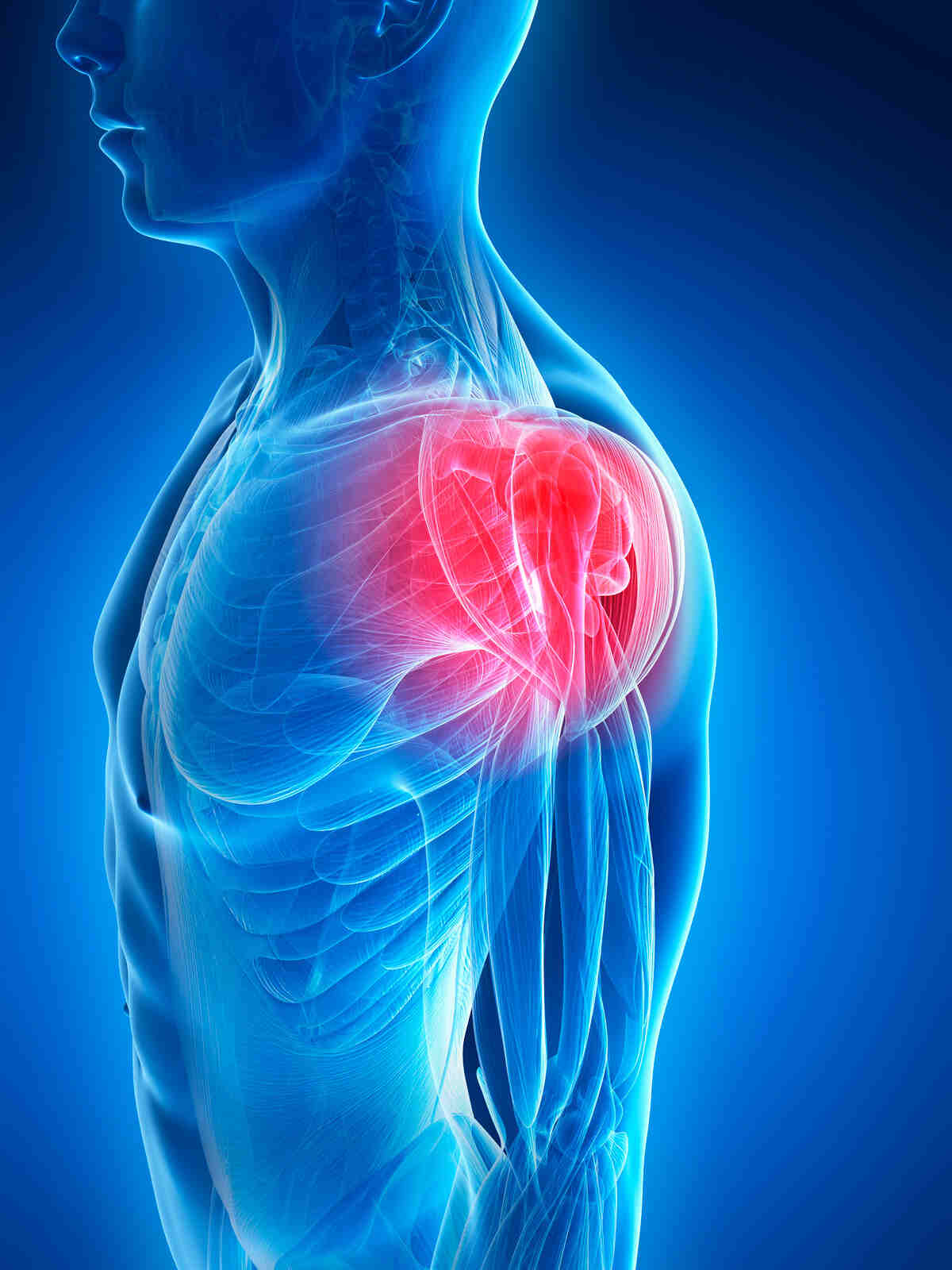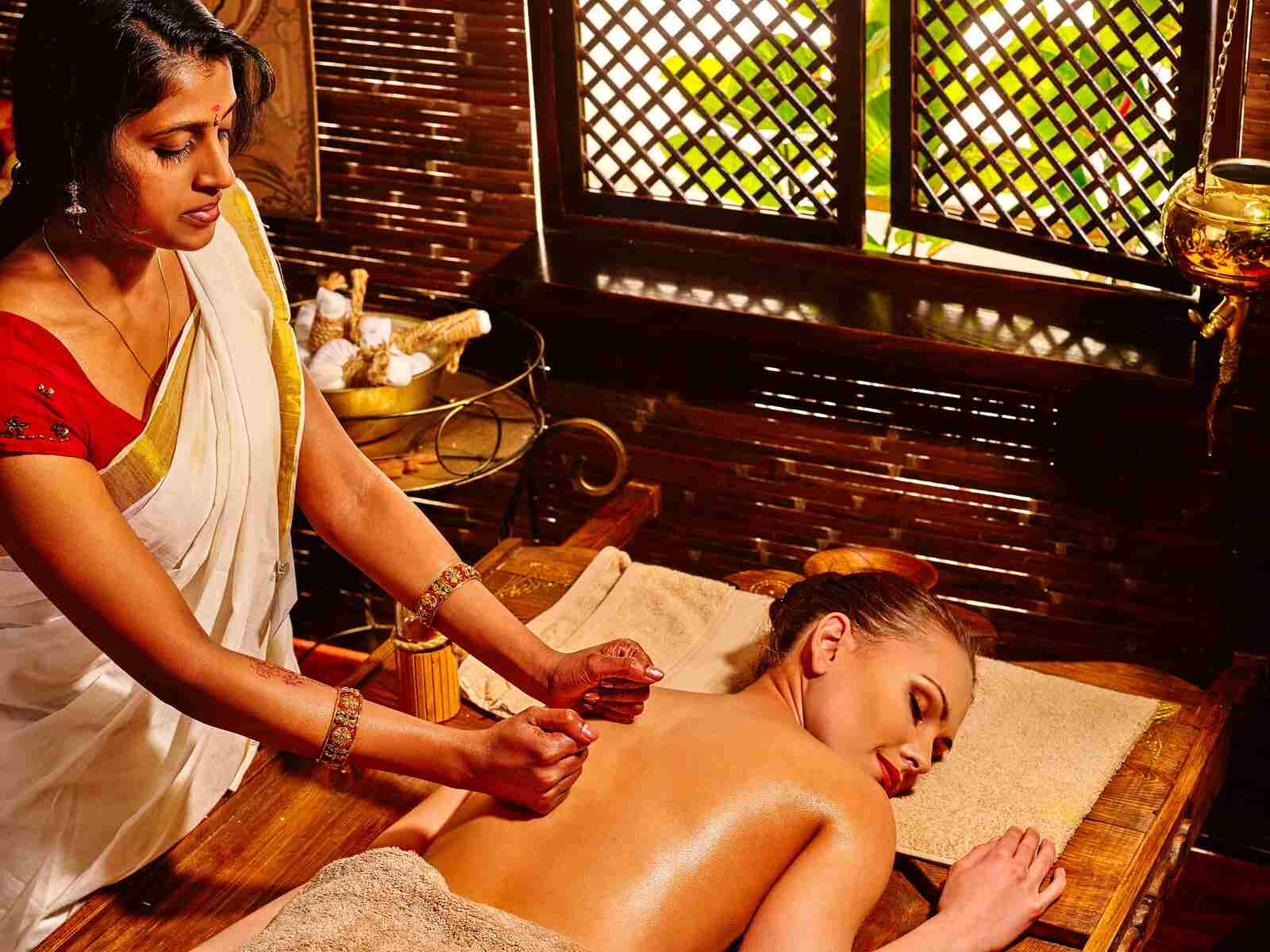Ayurvedic Treatment for Frozen shoulder
Niroga Ayurveda Healing ( Ayurveda Chikitsa / Treatments )
What is a Frozen Shoulder?

Symptoms of Frozen Shoulder
Frozen shoulder typically progresses through three stages:
- Freezing Stage: This initial phase lasts from six weeks to nine months. During this time, the shoulder becomes increasingly painful and begins to lose its range of motion.
- Frozen Stage: The pain may start to decrease, but the shoulder remains stiff. This stage can last from four to six months and is marked by significant limitations in shoulder movement.
- Thawing Stage: During the final stage, the shoulder slowly regains its range of motion. This phase can last from six months to two years.
Symptoms of Frozen Shoulder:
- Dull or aching pain in the shoulder
- Limited range of motion
- Stiffness that worsens over time


Causes of Frozen Shoulder
The exact cause of frozen shoulder is not fully understood. However, several factors can contribute to its development:
- Injury or Surgery: Shoulder injuries or surgeries that require prolonged immobilization can lead to frozen shoulder.
- Medical Conditions: Conditions such as diabetes, thyroid disorders, cardiovascular disease, and Parkinson’s disease are associated with a higher risk of developing frozen shoulder.
- Age and Gender: Frozen shoulder is most common in people between the ages of 40 and 60, and it affects women more often than men.
Ayurveda’s Holistic Approach to Frozen Shoulder
Frozen shoulder, known as“Avabahuka” in Ayurveda, is a condition characterized by stiffness and pain in the shoulder joint. From an Ayurvedic standpoint, this condition is predominantly caused by an imbalance in the Vata dosha, which governs movement and flexibility. When Vata is aggravated, it leads to dryness, stiffness, and restricted movement in the shoulder.


Ayurvedic Treatment For Frozen Shoulder
Internal Treatments
1. Herbal Formulations:
- Ashwagandha (Withania somnifera): Known for its anti-inflammatory and rejuvenating properties, Ashwagandha helps in reducing pain and inflammation.
- Guggulu (Commiphora mukul): Effective in reducing inflammation and stiffness, Guggulu is often prescribed in conditions involving joint pain.
- Rasna (Pluchea lanceolata): This herb helps in alleviating pain and improving mobility in the affected area.
- Dashamoola Kashaya: A traditional Ayurvedic decoction made from ten roots that balances Vata and reduces inflammation.
2. External Treatments
- Abhyanga (Oil Massage):
- Regular massage with warm sesame oil or Mahanarayan oil helps in improving blood circulation, reducing stiffness, and alleviating pain.
- Swedana (Herbal Steam Therapy):
- Herbal steam therapy helps in relaxing the muscles and increasing circulation to the affected area, reducing stiffness and pain.
Panchakarma Therapies:
- Nasya (Nasal Administration): Medicated oils administered through the nasal passages help in balancing Vata and relieving shoulder pain.
- Pizhichil (Oil Bath): Warm medicated oil is poured over the body, which helps in relieving pain and stiffness in the shoulder joint.
- Kizhi (Herbal Poultice): Warm herbal poultices are applied to the shoulder, which helps in reducing pain and inflammation.
Changes in diet and lifestyle together with home remedies
- Hot and Cold Compresses:
- Alternating between hot and cold compresses can help in reducing pain and inflammation.
- Turmeric Milk:
- Drinking a glass of warm milk with a teaspoon of turmeric powder helps in reducing inflammation and pain.
- Castor Oil:
- Consuming a teaspoon of castor oil before bedtime helps in lubricating the joints and relieving stiffness.
- Fenugreek Seeds:
- Soak fenugreek seeds overnight and consume them in the morning. Fenugreek has anti-inflammatory properties that can help reduce pain.
Lifestyle Changes:
- Dietary Recommendations:
- Warm, unctuous foods: Include ghee, sesame oil, and warm soups to pacify Vata.
- Anti-inflammatory spices: Incorporate turmeric, ginger, and garlic into your diet.
- Hydration: Drink warm water and herbal teas to keep the body hydrated and support digestion.
Exercise and Yoga:
- Gentle stretching: Regular gentle stretching exercises help in maintaining mobility and reducing stiffness.
- Yoga: Poses like Gomukhasana (Cow Face Pose) and Bhujangasana (Cobra Pose) are beneficial for shoulder mobility.
- Maintaining Proper Posture:
- Avoid slouching and maintain an ergonomic posture while sitting and working to prevent further strain on the shoulder.
- Stress Management:
- Practice meditation and deep breathing exercises to manage stress, which can aggravate Vata and contribute to stiffness.
- Adequate Rest:
- Ensure proper rest and avoid overexertion of the shoulder joint.
Conclusion
Frozen shoulder, or Avabahuka, can be effectively managed through a combination of internal and external Ayurvedic treatments, home remedies, and lifestyle changes. By addressing the underlying Vata imbalance and incorporating these holistic approaches, one can achieve relief from pain and stiffness, and restore the natural movement of the shoulder joint. Always consult with an Ayurvedic practitioner for a personalized treatment plan tailored to your specific condition.
This content is unique and plagiarism-free, providing a comprehensive Ayurvedic perspective on managing frozen shoulder.
FAQs
Frequently Asked Questions
Q1: What is frozen shoulder, and what causes it?
A: Frozen shoulder, also known as adhesive capsulitis, is a condition characterized by stiffness and pain in the shoulder joint. It occurs when the connective tissue surrounding the shoulder joint thickens and tightens, restricting movement. The exact cause is often unknown, but it can develop after an injury, surgery, or in individuals with diabetes or thyroid disorders.
Q: How does Ayurveda approach the treatment of frozen shoulder?
A: Ayurveda treats frozen shoulder by addressing the root cause of the condition and balancing the body’s doshas (Vata, Pitta, and Kapha). Treatments include herbal medications, therapeutic massages (such as Abhyanga and Pizhichil), Panchakarma (detoxification procedures), and specific exercises and lifestyle modifications to reduce pain, improve mobility, and promote healing.
Q: What are some effective Ayurvedic therapies for frozen shoulder?
A: Effective Ayurvedic therapies for frozen shoulder include:
- Abhyanga: A full-body oil massage that helps improve circulation, reduce stiffness, and alleviate pain.
- Pizhichil: A warm oil therapy where medicated oil is poured over the body, followed by a gentle massage to relax muscles and joints.
- Vasti: An enema therapy that helps detoxify the body and balance the doshas, promoting overall healing.
- Nasyam: Administering herbal oils or powders through the nostrils to clear blockages and reduce inflammation.
Q: How long does it take to see results from Ayurvedic treatment for frozen shoulder?
A: The duration of treatment and the time it takes to see results can vary depending on the severity of the condition and the individual’s overall health. Generally, patients may start to notice improvements within a few weeks of consistent treatment, with significant relief often seen within a few months.
Q: Are there any dietary recommendations in Ayurveda for managing frozen shoulder?
A: Yes, Ayurveda recommends a diet that helps reduce inflammation and promotes healing. This includes eating anti-inflammatory foods such as fresh fruits, vegetables, whole grains, and lean proteins. It is advised to avoid processed foods, excessive sugar, and fried foods. Including spices like turmeric and ginger in the diet can help reduce inflammation and support joint health.
Q: Is Ayurvedic treatment for frozen shoulder safe, and are there any side effects?
A: Ayurvedic treatment for frozen shoulder is generally safe when administered by a qualified Ayurvedic practitioner. The treatments use natural herbs and therapies that are non-invasive. Side effects are rare but may include mild discomfort during detoxification processes. It is important to follow the practitioner’s guidance and inform them of any other medical conditions or treatments you are undergoing.
Fill out this form for booking online.
Appointment
Book An Appointment
Make sure to note down the appointment date, time, and location provided by the clinic. Set reminders on your calendar or set an alarm to ensure you are punctual and do not miss your appointment.
Customer Service
+91 84668 82266
WhatsApp Now
+91 84668 82266
Subscribe Now
SaiAyush Ayurveda

